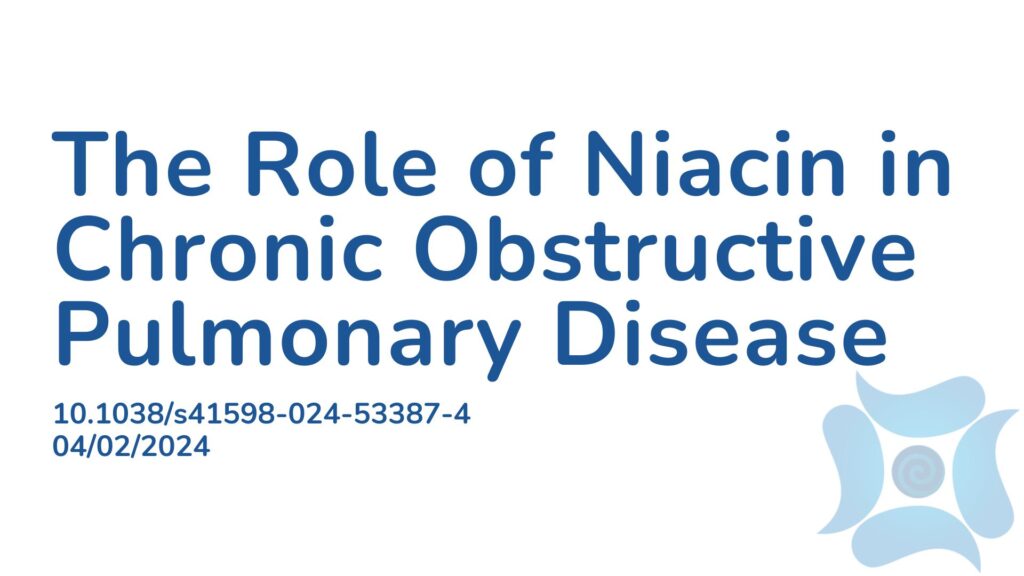Summary:
COPD (chronic obstructive pulmonary disease) is a widespread lung condition marked by airflow blockages and clinical symptoms like difficulty breathing, coughing, and sputum production. Its impact extends beyond the lungs, affecting bone, muscle, and cardiovascular health, contributing to over three million deaths annually worldwide. Despite medical advancements, COPD mortality rate remains high, with factors like smoking and aging exacerbating its toll. Identifying and addressing modifiable risk factors are crucial for delaying COPD onset and managing its complications. Deficiencies in nutrients can lead to health issues, but replenishing them often alleviates symptoms. Research has found that vitamins such as C, E, D, and niacin reduce oxidative stress and aid in cellular repair and inflammation reduction. Niacin, also known as vitamin B3, and the connection to lung health is largely unexplored. This study aimed to investigate the relationship between COPD prevalence and dietary niacin intake. The study involved 7,055 adult participants, categorized into COPD and non-COPD groups. Those with COPD exhibited lower average niacin intake compared to the non-COPD group. The results concluded that dietary niacin intake displayed an inverse association with COPD prevalence in US adults, with participants with the highest dietary niacin intake showing the lowest odds of COPD. Further exploration into the potential of dietary niacin supplementation as a COPD mitigation strategy is warranted.
Abstract:
Evidence regarding the association between dietary niacin intake and chronic obstructive pulmonary disease (COPD) is limited. Our study investigates the relationship between dietary niacin intake and the prevalance and incidence of COPD in the adult population of the United States, using data from the National Health and Nutrition Examination Survey (NHANES) from 2003 to 2018. Data on niacin intake were extracted through dietary intake interviews. COPD diagnoses were based on lung function, medical history, and medication usage. We analyzed the association between niacin consumption and COPD using multiple logistic regression and restricted cubic spline models. The study included 7055 adult participants, divided into COPD (n = 243; 3.44%) and non-COPD (n = 6812; 96.56%) groups. Those with COPD had lower average niacin intake (21.39 ± 0.62 mg/day) compared to the non-COPD group (25.29 ± 0.23 mg/day, p < 0.001). In the adjusted multivariable model, the odds ratios (OR) and 95% confidence intervals (CI) for COPD in the highest versus lowest quartile of dietary niacin intake were 0.55 (0.33 to 0.89, P for trend = 0.009). Subgroup analysis, after adjustment for various variables, revealed no significant interaction effects. Dietary niacin intake was inversely associated with COPD prevalence in US adults. Participants with the highest dietary niacin intake demonstrated the lowest odds of COPD. The potential of dietary niacin supplementation as a strategy to mitigate COPD warrants further investigation.
Article Publication Date: 04/02/2024
DOI: 10.1038/s41598-024-53387-4



